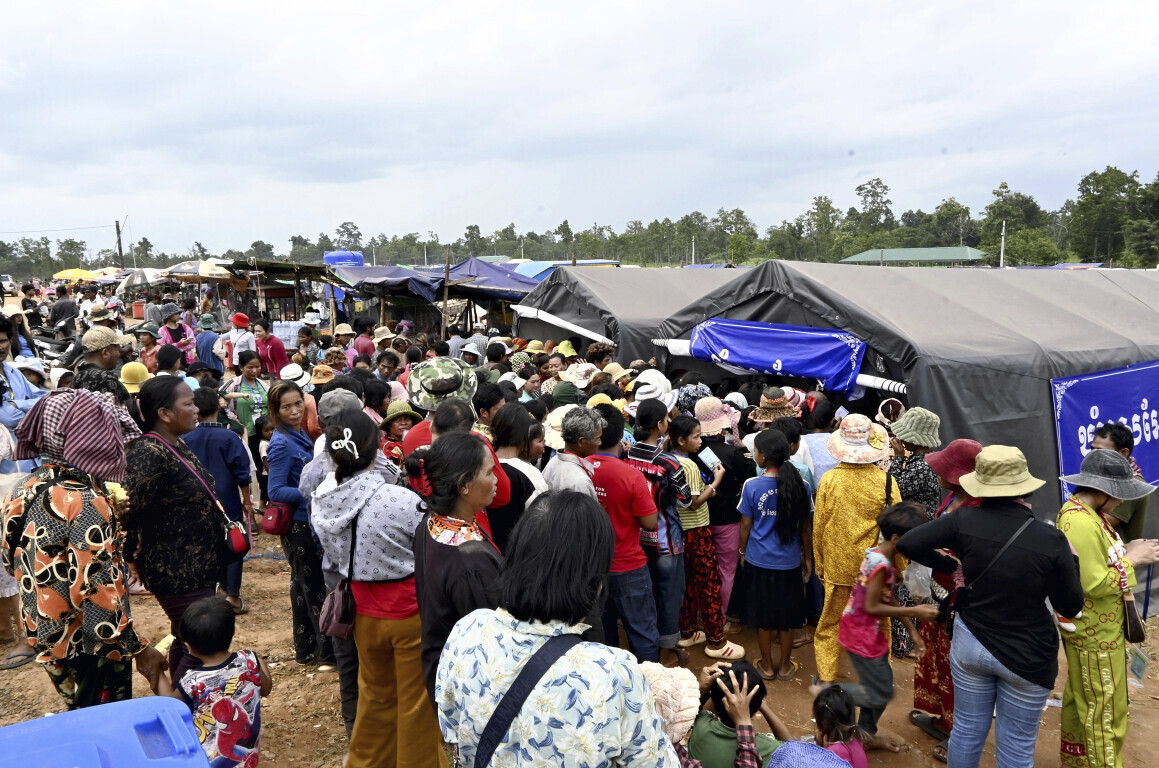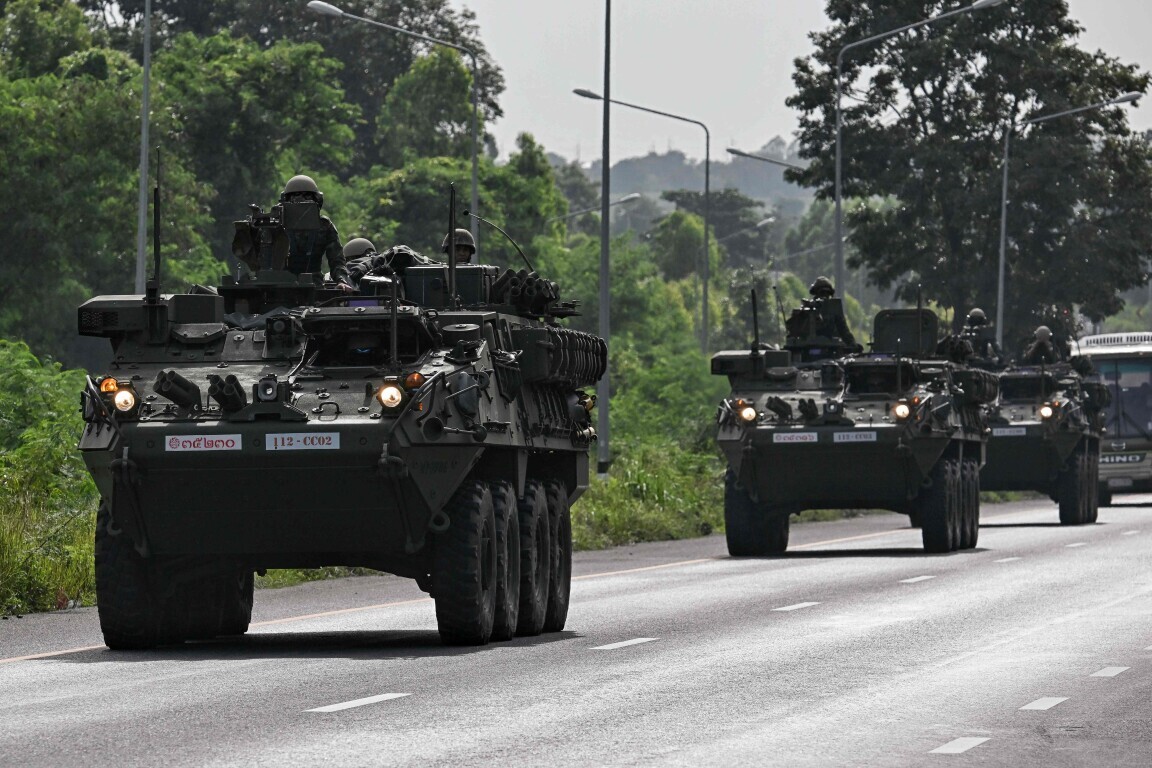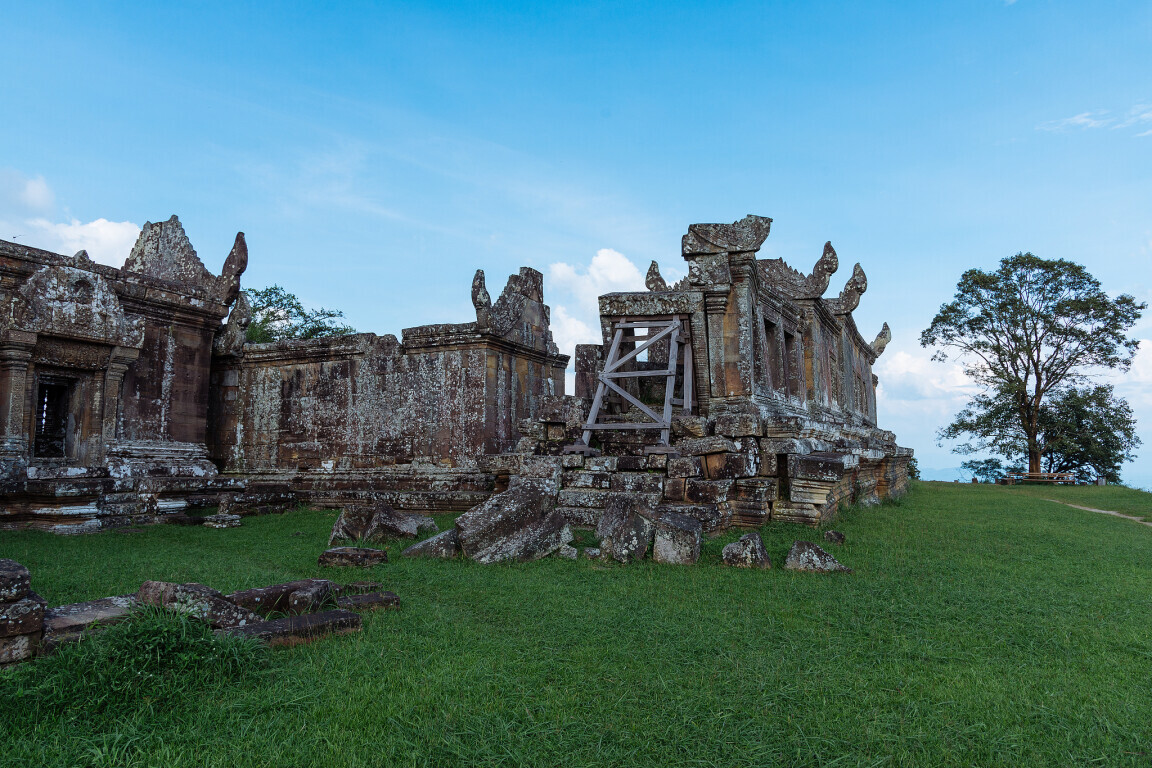Thailand and Cambodia escalated their ongoing border clashes into the third day, with at least 30 killed and more than 135,000 displaced, according to officials from both countries.

Evacuees line up for rice distribution in Preah Vihear, northern Cambodia, July 25, 2025. (Photo: CFP)
It's considered the worst fighting between the Southeast Asian neighbors since 2011, as Thai and Cambodian forces exchanged artillery, rocket fire, and airstrikes across multiple disputed frontier sites.
Both governments claim that the other side fired first, each accusing the other of violating international law. They have both recalled their ambassadors and downgraded diplomatic ties.
Thai Foreign Minister Sangiampongsa ordered the ministry on Friday to prepare a plan for evacuating Thai citizens from Cambodia.
“The conflict might continue and escalate in the near future,” said Xu Liping in an interview with South. Xu is an esteemed expert on Southeast Asian studies from the Chinese Academy of Social Science.
How did it start?
On May 28, 2025, a Cambodian soldier was killed in a brief exchange of fire in the Emerald Triangle—a long-unmarked zone claimed by both sides.
In mid-June, a politically explosive leaked phone call between Thai PM Paetongtarn Shinawatra and Cambodian Senate president Hun Sen was made public, provoking outrage in Thailand and ultimately triggering Paetongtarn's constitutional suspension.
“There has been a stunning and barely believable falling-out between two highly influential political dynasties in Southeast Asia,” said Control Risks’ Harrison Cheng, a Singaporean geopolitical analyst.
Later in July, Thailand accused Cambodia of laying landmines that maimed Thai soldiers—prompting an ambassadorial recall, as well as trade and media sanctions.
“The landmine incident is the immediate cause of the current violent conflict,” said Xu.

Thai soldiers on armored vehicles on a road in Chachoengsao province on July 24, 2025. (Photo: CFP)
On July 24, Thai forces reported seeing Cambodian drones and armed soldiers breach the boundary. Shortly thereafter, shots were fired roughly 200 meters east of the Thai base.
Decades of border dispute
The border dispute between Thailand and Cambodia dates back to the 1907 Franco-Siamese treaty, when French colonial authorities drew boundary maps that later led to overlapping claims.

(Preah Vihear Temple, October 2, 2018. Photo: CFP)
The two nations have sparred over jurisdiction along parts of their roughly 500-mile frontier. The dispute centers on ancient Hindu temples, including Ta Moan Thom and the 11th-century Preah Vihear, located in areas where demarcation remains unclear.
"This is a negative legacy of colonialism," Xu said. "The unequal treaties signed by French colonial rulers during their domination of the Indochina Peninsula have played a harmful role in the current dispute.”
Between 2008 and 2011, tensions sharply escalated after Cambodia successfully nominated Preah Vihear as a UNESCO World Heritage Site.
Despite a peace agreement in 2011, regular skirmishes have continued since.
Casino business involved?
Xu told South that Mr. Thaksin’s Pheu Thai party has been strongly pushing to legalize casinos.
Thais constitute a key group of customers and a source of labor for Cambodia’s many casinos, especially those along their shared land border.
“If Thailand legalizes casinos, there’s no doubt it would impact Cambodia’s gambling industry,” Xu said. “In my view, this is a key flashpoint.”
How has international community reacted?
The U.N. Security Council convened an emergency meeting on Friday as the United States, China, and countries in Southeast Asia called on the two governments to de-escalate.
Malaysia, which chairs the regional bloc ASEAN that includes both countries, called for either side to stand down and offered to mediate.
“Cambodia wants to end the conflict as soon as possible, but Thailand doesn’t feel the same—after all, the casualties have been significant, and it’s facing a domestic political crisis,” Xu observed. “That said, I believe both sides will eventually be open to Malaysia’s mediation.”
Chinese Foreign Ministry spokesperson Guo Jiakun said Thursday that China has been and will continue, in its own way, to work to encourage peace and facilitate dialogue.
Reporter: Xie Hongzhou
Photo: CFP
Editor: James, Yuan Zixiang, Shen He
















